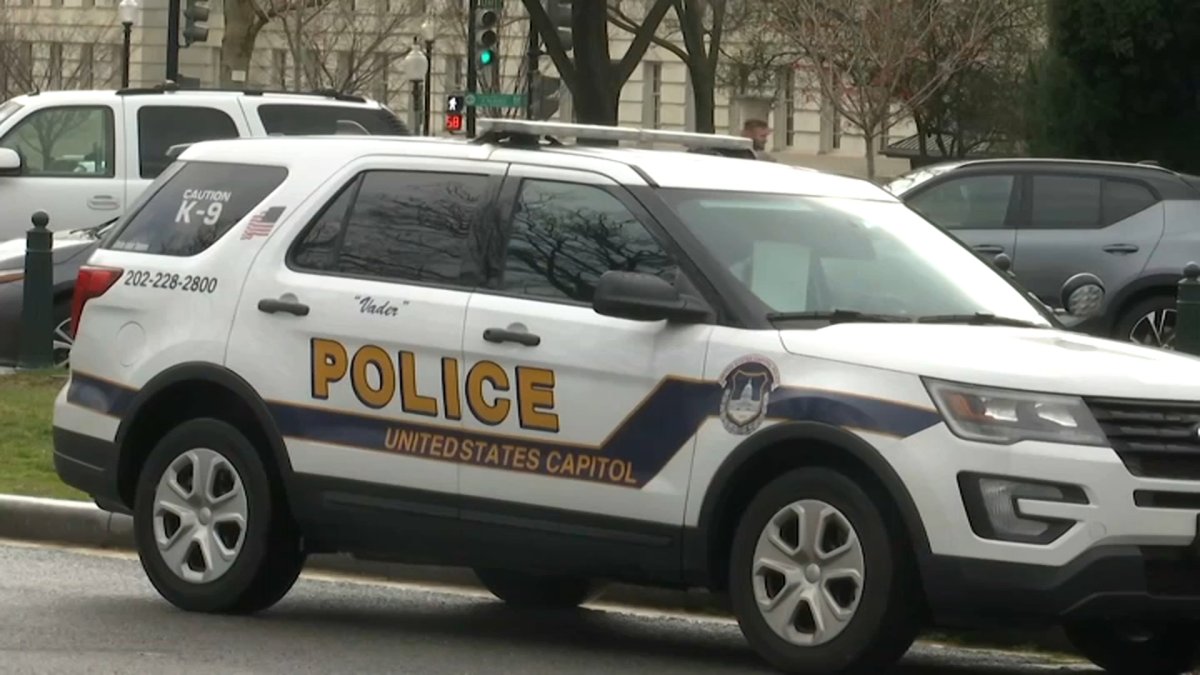
The insurrection at the U.S Capitol was unprecedented. Multiple congressional investigations are underway about how it happened, but concerns about the policies and transparency with U.S. Capitol Police date back years. The News4 I-Team’s Scott MacFarlane reports.
The insurrection at the U.S Capitol was unprecedented. Multiple congressional investigations are underway about how it happened, but concerns about the policies and transparency with U.S. Capitol Police date back years.
Ololade Odeyale is one of the thousands who worked inside the U.S. Capitol each day handling maintenance with the Architect of the Capitol’s Office.
We're making it easier for you to find stories that matter with our new newsletter — The 4Front. Sign up here and get news that is important for you to your inbox.
In 2018 he was surprised when he left work, got in the car and got pulled over by Capitol Police. “I've never been humiliated in my life. I've never been. And this great embarrassment,” Odeyale told the News4 I-Team.
He said police told him there was a problem with his license plates. "He said, ‘Are you sure you work there?’ I said I work right here. Then he said, ‘Nah, nah, nah, nah, nah.’“ Odeyale said the officer then put him in handcuffs and held him for four hours before letting him go without any charges. But he said he’s having a hard time letting the experience go, spending months trying to get a copy of any police report to clear his name. "Because I just want to report it. I want everybody to know what was going on, " said Odeyale.
Ryan Davis feels the same. “They pointed a gun at me,” he told News4 in June. The longtime Capitol worker said police drew their weapons when they said he failed to stop at an ID checkpoint last summer.
Local
Washington, D.C., Maryland and Virginia local news, events and information
His lawyer disputes the police account but said for months the Capitol Police have refused to hand over surveillance video which would prove it.
"There are security cameras everywhere, and there's evidence that would be dispositive of the issue," attorney Lucius Outlaw said. The I-Team asked him, "Even an attorney can't just ask for the relevant video?"
"You can ask, but they're going to tell you no, and they're going to withhold information and evidence very close to the vest of the U.S. Capitol Police,” said Outlaw.
For years, people on the Hill have credited the nearly 2,000 officers for their work on the front lines but criticized the agency leadership for operating in the dark. Unlike local police departments, Capitol Police doesn’t release records or reports, and in the first 10 days after the insurrection, the agency declined to brief the public or describe all that had happened.
U.S. Capitol Police declined to speak to the I-Team about the riots or concerns about transparency.
“I gotta tell you, we’re having a hell of a time getting information from the Capitol Police,” said U.S. Rep. Tim Ryan (D-Ohio), who runs the powerful subcommittee that oversees and funds the agency. “We deserve to know what the hell is going on, and I got to tell you, it’s a black box over there.”
Because the U.S. Capitol Police answers only to Congress, it doesn’t have to follow many of the laws other police do, including the Freedom of Information Act. And because members of Congress come and go, so too does the pressure to change. But even before the recent riots at the Capitol, there have been concerns raised about access.
Including because of Doug Hughes of Florida. In 2015 Hughes flew a gyrocopter to D.C., landing on the Capitol grounds as a political protest. He said he had warned the police he was coming, yet seemed to catch them by surprise.
A congressional committee ordered the U.S. Capitol Police chief at that time to appear at a hearing days later. Hughes said police need to explain publicly how it failed on Jan. 6, too. “I’m surprised they completely dropped the ball and left Congress exposed,” said Hughes.
In each year since, Congress has boosted the police agency’s budget, including another $54 million in 2021, to a total of nearly a half-billion dollars a year. Last summer lawmakers included language in the budget that police should do a better job of informing the public about major security incidents and any misconduct by officers.
But just two weeks after it became law, the insurrection upended the Capitol.
"Without a means to get information from them, there's no way for the public to have a check and balance on their police powers," said Outlaw.
Reported by Scott MacFarlane, produced by Rick Yarborough, and shot and edited by Jeff Piper.